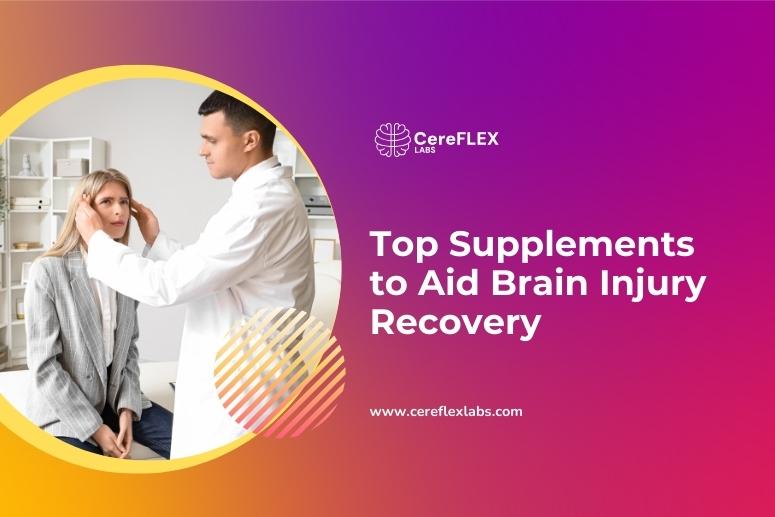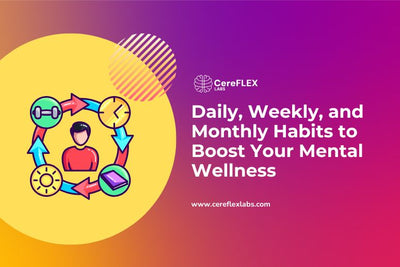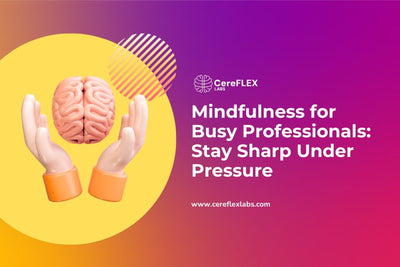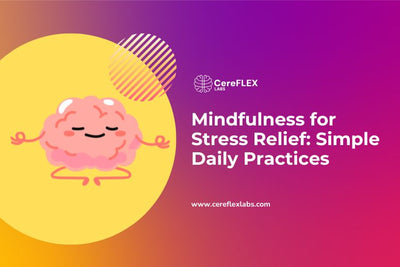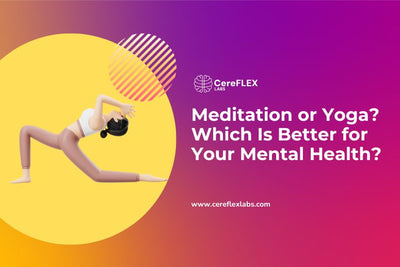Maintaining cognitive function as we age is a growing concern. Fortunately, there are many essential tools for cognitive longevity that can help preserve mental sharpness. While rest and medical care are crucial, targeted supplements can further support brain health, reduce inflammation, and promote faster recovery.
Whether you’re an athlete, senior, or caregiver, understanding these supplements can help you make informed choices for brain healing. Key nutrients such as omega-3 fatty acids, essential vitamins, and minerals play a vital role in enhancing the body's natural recovery process, helping you regain cognitive function and overall well-being.
The Role of Supplements in Concussion Recovery
Using the right supplements is one of the post-TBI recovery strategies that can support healing after a concussion. The brain is highly sensitive and requires specific nutrients to repair damage, reduce inflammation, and restore cognitive function.
A concussion can cause memory problems, headaches, and mood changes. While a nutrient-rich diet is essential for recovery, supplements can be beneficial, especially when appetite or digestion is affected.
Key supplements for concussion recovery include:
Omega-3 fatty acids (EPA & DHA): Found in fish oils, these help reduce inflammation and support brain health.
Creatine: Naturally present in red meat and fish, creatine boosts brain cell energy and protects mitochondria.
Antioxidants (Vitamins C, D, and E): These help protect brain cells from oxidative stress and damage. Sources include citrus fruits (Vitamin C), fortified milk (Vitamin D), and nuts, seeds, and leafy greens (Vitamin E).
Emerging Supplements:
-
Resveratrol (found in grapes and dark chocolate) may help protect neurons.
-
Melatonin shows potential in protecting the brain and regulating sleep cycles.
-
Curcumin (the active compound in turmeric) may help reduce inflammation and support neuron function.
While these nutrients and supplements are generally safe, it’s important to consult a healthcare provider for guidance on dosages and potential interactions. Nutrition plays a key role in healing, but it should be part of a comprehensive recovery plan that includes rest, therapy, and medical care.
What supplements aid in concussion recovery?
Supplements can support healing after a concussion by reducing inflammation, repairing brain cells, and enhancing cognitive function. Below are some of the specific supplements that support brain healing.

Omega-3s
Omega-3s improve brain health by enhancing memory1, supporting neuron growth, and increasing Brain-Derived Neurotrophic Factor (BDNF), which helps create new nerve cells. This is especially important for brain injury recovery, as it promotes neuroplasticity.
-
Sources: Fatty fish like salmon, mackerel, and sardines.
-
Supplement Option: Fish oil capsules.
-
Caution: Omega-3s can thin the blood. If you take blood-thinning medication or have a bleeding disorder, consult your doctor before supplementation.
Vitamin B12
Vitamin B12 plays a key role in nerve repair by supporting the production of myelin sheaths, the protective coating around nerves. It also helps brain cells generate energy, aiding recovery.2
-
Sources: Meat, eggs, dairy, and fortified cereals.
-
Supplement Option: B12 tablets or injections.
Vitamin D
Vitamin D is essential for brain protection and recovery. It helps regulate genes linked to brain function, supports neurotransmitter production, and reduces post-TBI fatigue3.
-
Sources: Fortified dairy products, fatty fish, and sunlight exposure.
- Supplement Option: Vitamin D3 capsules.
Magnesium
Magnesium is crucial for brain function and concussion recovery. Low magnesium levels can worsen outcomes after a brain injury. It plays a key role in reducing oxidative stress and supporting neural health.4
-
Sources: Nuts, seeds, whole grains, and leafy greens.
-
Supplement Option: Magnesium citrate or glycinate.
Zinc
Zinc supports brain tissue repair, immune function, and neuron growth, all of which are essential for brain recovery.
-
Sources: Oysters, beef, pumpkin seeds, and lentils.
- Supplement Option: Zinc gluconate or zinc picolinate supplements.
Vitamin E
A powerful antioxidant, vitamin E protects brain cells from oxidative stress following a brain injury. Research suggests it may help reduce brain damage and support nerve healing.5
-
Sources: Nuts, seeds, vegetable oils, and spinach.
- Supplement Option: Vitamin E capsules.
Curcumin
Curcumin, found in turmeric, reduces inflammation and supports neuron function. Pairing curcumin with black pepper improves absorption for better effects.
-
Sources: Turmeric (best absorbed when combined with black pepper).
-
Supplement Option: Curcumin supplements.
Coenzyme Q10 (CoQ10)
CoQ10 may help reduce headaches and oxidative stress following a concussion, especially when used alongside magnesium, omega-3s, and riboflavin.
-
Sources: Fatty fish, nuts, and organ meats.
- Supplement Option: CoQ10 capsules.
Vitamin C
Vitamin C acts as an antioxidant, protecting brain cells from further damage while also boosting neurotransmitter production and connective tissue repair.
-
Sources: Citrus fruits, bell peppers, and leafy greens.
- Supplement Option: Vitamin C tablets or powder.

Dosage and Administration of Supplements
The correct dosage of supplements depends on age, overall health, and the severity of a concussion. Consulting a healthcare provider ensures that you take the right amount and avoid interactions with medications or pre-existing conditions.
Some supplements can interfere with medications. Magnesium may reduce the effectiveness of certain antibiotics, while high doses of zinc can limit copper absorption. Omega-3 fatty acids may increase bleeding risks for individuals on blood thinners, and Vitamin D and calcium can affect calcium absorption, potentially impacting bone and cardiovascular health.
To maximize benefits, take supplements consistently at the same time each day and follow the recommended dosage. Over-supplementation can cause side effects or slow recovery rather than speed it up. Always read supplement labels and seek medical advice before starting a new regimen, especially if you have an existing health condition.
For the best results, supplements should be part of a broader recovery plan that includes a nutrient-rich diet, adequate rest, and physical therapy to support brain healing.
Safety and Efficacy of Supplements During Recovery
When taken correctly, supplements can support brain recovery, but excessive intake can lead to side effects. Fat-soluble vitamins like D and E can accumulate in the body and become toxic, while excess magnesium may cause digestive issues such as diarrhea. High zinc levels can interfere with copper absorption, leading to deficiencies.
Although Vitamin C is generally safe, consuming it in large doses may cause stomach discomfort. To avoid complications, it's important to follow recommended dosages and monitor for any unusual symptoms.
Before adding supplements to your recovery plan, consult a healthcare provider. They can assess your specific needs, prevent interactions with medications, and create a safe, effective supplement regimen. Professional guidance ensures that supplements enhance healing rather than pose unnecessary risks.
Conclusion
Supplements, when used alongside cognitive rehabilitation practices, can support recovery after a concussion or brain injury. They help reduce inflammation, promote brain cell repair, and enhance cognitive function. Key nutrients such as omega-3 fatty acids, magnesium, zinc, and essential vitamins play a crucial role in the healing process.
However, proper usage is essential. Taking supplements within recommended dosages and under the guidance of a healthcare provider ensures safety and effectiveness while preventing potential interactions. When combined with a balanced diet, rest, and rehabilitation, supplements can accelerate recovery and improve overall brain function.
